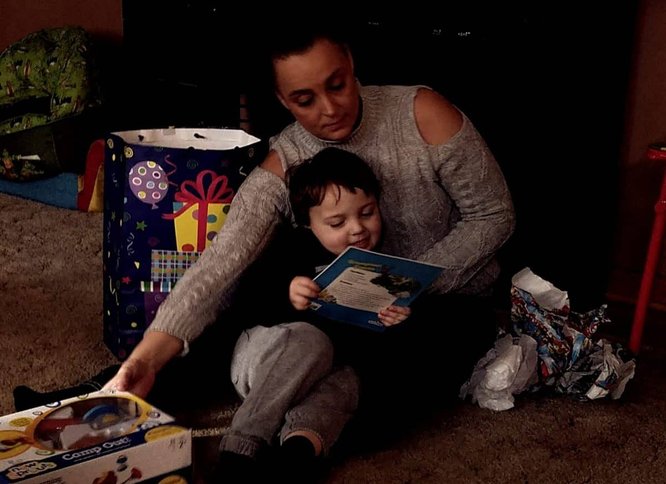
Is Klinefelter Syndrome Related to Autism?
Here at Living With XXY, we have featured numerous stories from individuals and families navigating life with both Klinefelter syndrome and autism spectrum disorder. We’ve found that these stories help newly diagnosed men understand their condition, learn how to thrive, and build self-confidence.
For example, we highlight one story from a mother who shares how her son's XXY diagnosis came alongside an autism diagnosis, and she explains the social and sensory challenges he faced at school. Another story comes from a father who recounts the surprise and emotional weight of discovering both XXY and developmental delays.
While not every person with XXY has autism, there is an intersection for some. This blog will correct any confusion and misconceptions regarding XXY and autism, and if you would like more context, please read the stories from our community.
Stories From Our Community
- Sept 29, 2022
Klinefelter Syndrome And Autism
Annette Flannery lives in Maryland with her husband and their son, Ronan. Ronan is a fantastic boy with Klinefelter syndrome and autism.
Read More - July 9, 2021
Blood work indicated “something was wrong"
Andrea Holdren is the mother of 3-year-old Connor, who lives with Klinefelter Syndrome and Autism. Andrea shares her story to help others.
Read More - Sept 04, 2021
Klinefelter syndrome - You are worthy
Having Klinefelter syndrome doesn't make you any less worthy. Like autism, Klinefelter syndrome is a spectrum disorder.
Read More

Understanding Klinefelter Syndrome and Autism
What Is Klinefelter Syndrome (47,XXY)?
Klinefelter syndrome is a genetic condition that affects approximately 1 in 650 males. It results from the presence of an extra X chromosome, giving individuals an XXY karyotype instead of the typical XY. The syndrome was first identified in 1942 by Dr. Harry Klinefelter, and today it is recognized as one of the most common sex chromosome variations
This condition often leads to lower testosterone levels and can impact growth, learning, speech, and emotional development. Some boys may experience delays in expressive language or struggle with attention and executive functioning. Many symptoms go unnoticed until adolescence or adulthood, when signs like infertility or gynecomastia become more apparent.
While some individuals show very few traits, others benefit from early diagnosis and supportive therapies.
What Is Autism Spectrum Disorder?
Autism is a neurodevelopmental condition that affects communication, social interaction, and behavior. It exists on a spectrum, meaning the traits and challenges vary widely between individuals. Some people may be nonverbal or need daily support, while others may live independently and communicate fluently but struggle with anxiety or sensory overload.
ASD is estimated to affect about 1 in 31 children in the U.S., according to the CDC. Common signs include difficulty with back-and-forth conversation, repetitive behaviors, a need for predictable routines, and unusual responses to sensory input like sound or touch. Autism is not caused by a single gene or environmental factor. Rather, it’s a complex combination of genetics and brain development.

Is There a Link Between XXY and Autism?
What the Research Says
Studies have shown that individuals with Klinefelter syndrome are diagnosed with autism at higher rates than the general male population. In fact, somewhere between 5% and 10% of individuals with XXY may meet diagnostic criteria for ASD. This is notably higher than the estimated autism prevalence in the general male population (which is around 4%).
However, these numbers don’t suggest that autism is inevitable in people with Klinefelter syndrome. The majority of individuals with XXY do not have an ASD diagnosis. Still, the increased association warrants attention, particularly during early developmental screenings. Physicians and caregivers who are aware of both diagnoses are better positioned to make accurate assessments.
Shared Characteristics, Not Always Autism
It’s important to remember that some of the challenges seen in Klinefelter syndrome, such as delayed speech, social withdrawal, or sensory sensitivities, can resemble autism but stem from different underlying causes. For example, low testosterone levels may influence mood and focus, while subtle differences in brain structure may affect language processing.
Only a licensed medical professional trained in neurodevelopmental evaluations can determine whether a person meets the criteria for an ASD diagnosis. A child with XXY who is shy or behind in reading social cues may not necessarily have autism. Distinguishing between overlapping traits and a formal diagnosis helps families access the right kind of support.
Common Areas of Overlap
Language and Communication
Both XXY and ASD are associated with expressive and receptive language challenges. Boys with Klinefelter syndrome may begin talking later than their peers or struggle to articulate thoughts clearly. Autism can also affect language but often includes difficulty with the social use of language, such as knowing when to take turns in conversation, or how to interpret sarcasm and metaphors.
For children with either condition, speech therapy can play a critical role. Targeted interventions help improve vocabulary, sentence structure, and the ability to engage in meaningful conversation.
Blood Tests to Analyze FSH and LH Hormones
These two hormones, FSH (follicle-stimulating hormone) and LH (luteinizing hormone), influence how the testicles function. In many people with XXY, the testicles don’t respond well to these hormones, and as a result, levels of FSH and LH often rise. Doctors use this information to get a better sense of how the body is trying to balance things. While this doesn’t confirm the diagnosis on its own, it’s a common clue that something might be different genetically.
Sensory and Motor Differences
Fine motor delays, poor hand-eye coordination, and sensitivity to textures or noise can appear in both Klinefelter syndrome and autism. Studies have found that boys with XXY performed below average on motor planning tasks. Similar patterns appear in many children with ASD, who may avoid clothing tags, dislike loud environments, or have difficulty with handwriting.
These shared challenges can make everyday tasks harder, but they are also manageable. Occupational therapists and physical therapists are trained to help children adapt to sensory input and improve coordination, which supports both independence and confidence.

XXY and Autism Do Have Overlapping Symptoms
While autism and Klinefelter syndrome are different conditions, there is some overlap in how they affect language, social development, and sensory processing. A small but significant number of individuals with XXY are also diagnosed with autism, and understanding this connection can help families seek earlier support.
Boys and men with Klinefelter syndrome may share some features with autism, but every person’s strengths, needs, and experiences are unique. For more information or to explore personal stories, read the anecdotes shared by the members of our community. You’ll find encouragement and insight, and you’ll realize that you are not alone on your journey.
Stay Informed With Every Update
Sign up to receive our latest stories, educational resources, and opportunities to connect with others in the XXY community.
Join The Community Today


